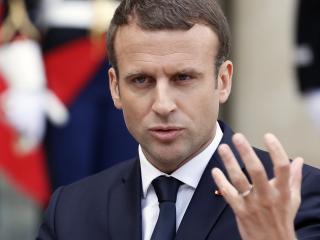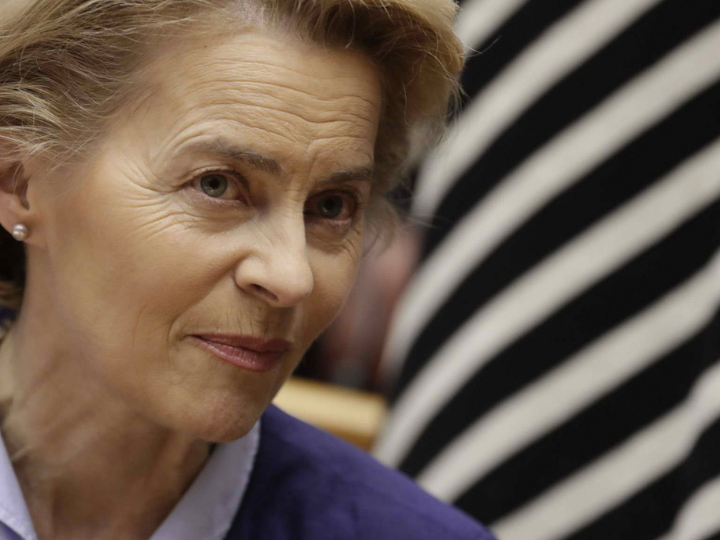By
Tomas Valasek*
Last week, I wrote that if Europe is to overcome East-West tensions, the newer member states need to see more of their preferences reflected in the EU’s decisions. No one likes to be a rule-taker forever. The enlarged EU must feel to the Central and East Europeans like a reunion, not a takeover.
But this requires that the Central and East Europeans do their bit too. While the 2004 accession states differ from one another—and the following observations don’t apply to all in equal measure—three failures in general have dogged their ability to influence EU policies.
The first is the absence of a positive agenda. Fairly or unfairly, the West associates Central and East Europe with three no’s: no to migration, no to new powers to Brussels, and no to lower quality of foods. This is not to argue against the substance of some of these positions—they were right to rebel against being sold inferior goods.
The need for further integration is far from clear-cut; some older member states are not sold either. The point is that any country would eventually make itself unloved if it only blocked things. From time to time, governments need to mix rejection with positive proposals and solutions of their own, even if on unrelated dossiers.
They also need to win support for those ideas among other capitals, because nothing in the European Union happens just because one country wishes so. Here we come to the second failure of Central and Eastern Europeans’ approach to the EU: the inability to build durable alliances with older member states.
The former spend too much time huddling with one another and need to “break out their ghetto,” as one retired West European diplomat told me.
It has not always been so. At the height of the financial crisis a decade ago, the Central and East Europeans lined up firmly with Germany, the Netherlands, and others in the austerity camp against most of Europe’s South. For a number of years, Berlin seemed to be playing somewhat of a chaperon to the new members, as it did with Austria after it had joined in 1995, or as France and Italy did to Spain and Portugal even further in the past.
But the migration crisis has redrawn the political boundaries; it reunified most of West European governments on the one side (present coalition in Italy excluded) and most Central and East Europeans on the other. That’s been the defining line in Europe for the past four years (a rare exception is the Nordic-Baltic cooperation).
The advice for Central and East European diplomats to branch out of the region seems to run against the grain of EU coalitions: most are regional. The Benelux countries team up with one another when they need to get things done in the EU. So do the South Europeans. When the Central and East Europeans’ interests align, such as on inferior foods, it makes sense for them to stick together.
But on most other issues, they would be better off reaching out westward. This is because they face a unique challenge. Whether they like it or not, they are newer than others and need to work harder to prove themselves. The fastest way for their preferences to gain legitimacy is if they are endorsed by the older member states—that’s why the chaperon system is so important.
Also, “Central European” has become synonymous west of Prague with “suspect,” mostly owing to worries about democracy in Hungary and Poland. If Slovakia or the Czech Republic wants to escape Viktor Orban’s shadow, they need to spend less time with the rest of the Visegrad Four and more with Germany, France, or the Netherlands.
The third failure is the Central and East Europeans’ inability, especially in recent years, to find the right language to make their case. EU decisionmaking is a school of hard knocks. Even the biggest EU countries fail to get their way. France lost the battle over the shape of EU defense cooperation.
Germany lost the battle over emission controls. Smaller West European countries lose more often than the big ones. But they don’t respond by launching a media campaign against Brussels, as Viktor Orban has. They don’t describe the rest of the EU as “infected by social diseases,” as Jaroslaw Kaczynski has.
This sort of language makes it very difficult for the rest of the EU to take Budapest or Warsaw seriously, even when they do have a point. Again, things used to be different: Poland was a good steward of the EU project in its first years of membership. The Balts continue to be productive members. But too many in the region sound more interested in rebelling against the EU than in making it their own.
The Central and East Europeans may interject at this point and say that we ought not to be surprised. The older EU countries have treated the newcomers as second-class citizens from the moment they applied for membership, runs a frequent lament. Majorities in Slovenia, Latvia, Hungary, the Czech Republic, Lithuania, and Estonia feel that their voice does not count in the EU. Eventually, the cup runneth over.
They are not entirely wrong to suspect double standards; the point is that a sense of inferiority is a poor guide to policy, nor is it entirely warranted. The accession process by definition put the two sides at an uneven level. The established member states had every right to ask the newcomers to abide by the rules of the club.
That was fourteen years ago—before the economic crisis, before the migration crisis, and before Donald Trump. The EU has evolved enormously since then in response to these and other challenges, and the Central and East Europeans have been at the table all along. They had a myriad of opportunities to leave a more visible imprint on EU policies than they did. The failure to do so lies in great part at their feet.
Luckily, the next year offers plenty of opportunities for redemption, such as the budget debate. Rather than merely opposing cuts to their funding, can Central and East European states propose ways to modernize the antiquated overall EU budget? They would have quite a few West Europeans on their side.
The older member states seem ready to listen. “Change the future of Europe. …use every opportunity to take part in the European dialogue,” Emmanuel Macron told the Slovaks on a visit in October.
*director of Carnegie Europe, where his research focuses on security and defense, transatlantic relations, and Europe’s Eastern neighborhood
** First published in carnegieeurope.eu




 By: N. Peter Kramer
By: N. Peter Kramer
